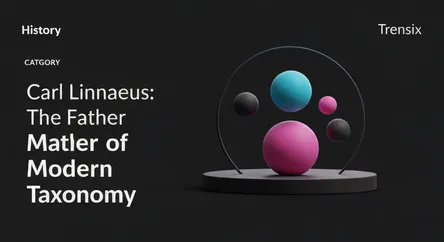History
Carl Linnaeus: The Father of Modern Taxonomy

Discover Carl Linnaeus, the Swedish botanist who revolutionized biology with the two-name system for classifying all living things.
What is it?
Carl Linnaeus (1707-1778) was a Swedish botanist, physician, and zoologist acclaimed as the "father of modern taxonomy." He established binomial nomenclature, the universal two-part Latin naming system for species (e.g., Homo sapiens for humans). Before Linnaeus, names of organisms were long and descriptive, causing confusion. His system provided a standardized, hierarchical classification, grouping organisms into kingdoms, classes, orders, genera, and species. His major works, Systema Naturae and Species Plantarum, laid the foundation for modern biological nomenclature.
Why is it trending?
Linnaeus's work remains the bedrock of biology, making him a perpetually relevant historical figure. His system for organizing and naming species is indispensable for scientists studying biodiversity, ecology, and evolution. As new species are discovered and genetic analysis provides deeper insights, the foundational principles of Linnaean taxonomy are constantly referenced and built upon. His methodical approach to classification brought order to the chaotic study of nature and paved the way for future scientific breakthroughs, including Charles Darwin's theory of evolution.
How does it affect people?
The Linnaean system affects everyone by providing a clear, universal language to identify and discuss the natural world. From the food we eat to the medicines we develop and the conservation efforts we undertake, all rely on accurately identifying and classifying species. This system allows scientists, conservationists, and doctors globally to communicate unambiguously about specific organisms. It underpins our understanding of the web of life, enabling us to study ecosystems, track diseases, and appreciate the immense biodiversity of our planet, making his 18th-century work a vital part of modern life.